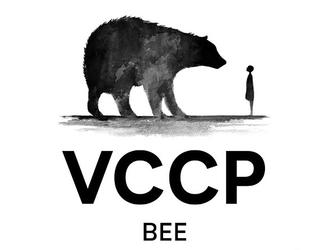Market research ‘has a massive image problem’ attracting talent
Speaking during today’s Impact 2021, Sara Picazo, head of research at Twitter, argued that when targeting prospective recruits at university, the industry may be “good at going into detail, but they’re not good at describing why this should be interesting to you".
"The industry is not doing a good sales job," she said.
The ‘IJMR Debate: Reach for the stars: How can insight win the war for talent?’ session was hosted by IJMR editor-in-chief Dan Nunan, who cited a major job perception study which showed there was not a single market research firm among the top 300 companies selected by graduates as places they would like to work.
Appropriately enough, both Picazo and her co-speaker, Harry Davies, head of measurement and analytics at Google, fell into market research, having kicked off their careers in other professions – sales and marketing respectively.
But both were soon drawn into market research out of a fascination for a discipline that strives to understand and influence people.
Nunan pointed out that the term “war on talent” has been around since the 1990s, and that today the situation is more akin to a “siege on talent”. But, he asked, how effective is the sector at winning the war?
“It’s not that we don’t have good talent in the sector,” Picazo said. “I think we’re not deliberate enough in the type of talent background and walks of life that we bring in.
“There’s an issue with diversity and inclusion. We firstly need to ask ourselves when we talk about the best talent – what does that mean? A lot comes back to having diverse skills, backgrounds and ethnicities coming into the sector. We do our best when we have a diverse set of views and skillsets.”
Davies admitted that he himself had “become a white middle-aged man, so it feels odd – I’ve become part of a majority group that tends to hold power”.
“There are lots of people who look like me and this is the sector that’s meant to be understanding the whole population and what’s driving people to make the decisions they make.
“If that’s just small groups of society, then it’s bound to fail. It matters because it’s the right thing to do, but also businesses are not able to create the right products and services for people unless they understand who they’re building them for.”
Nunan pointed out that the term “market research” is not nearly as appealing as terms like “data analytics” or “insights”, and suggested that nomenclature is part of the problem.
“If you ask a young person about market research, they think it’s people asking them annoying questions. Do you think it’s a bad term?”
Picazo did. “It’s outdated. We need to reassess this term we use externally [and shift] to a narrative around what we do. We also should be more deliberate about where we look for talent. Does it have to be in the universities? Can it be school based?”
More positively, while the industry might be failing to appeal to young graduates, or people outside the university system, it’s better at keeping its people.
“What the industry does really well is retaining talent,” Davies said. “You can meet with senior leaders and have conversations with them about methods they use, and they’re passionate about it and they’ve had a really long career. That’s a good thing to celebrate.”
Book today to join the live event and access all content via the MRS on demand service –mrsannualconference.com/book

We hope you enjoyed this article.
Research Live is published by MRS.
The Market Research Society (MRS) exists to promote and protect the research sector, showcasing how research delivers impact for businesses and government.
Members of MRS enjoy many benefits including tailoured policy guidance, discounts on training and conferences, and access to member-only content.
For example, there's an archive of winning case studies from over a decade of MRS Awards.
Find out more about the benefits of joining MRS here.













1 Comment
Lucy Davison
5 years ago
Any one in my session today "How to be famous" might have learnt some ways to solve the image problem.
Like Reply Report